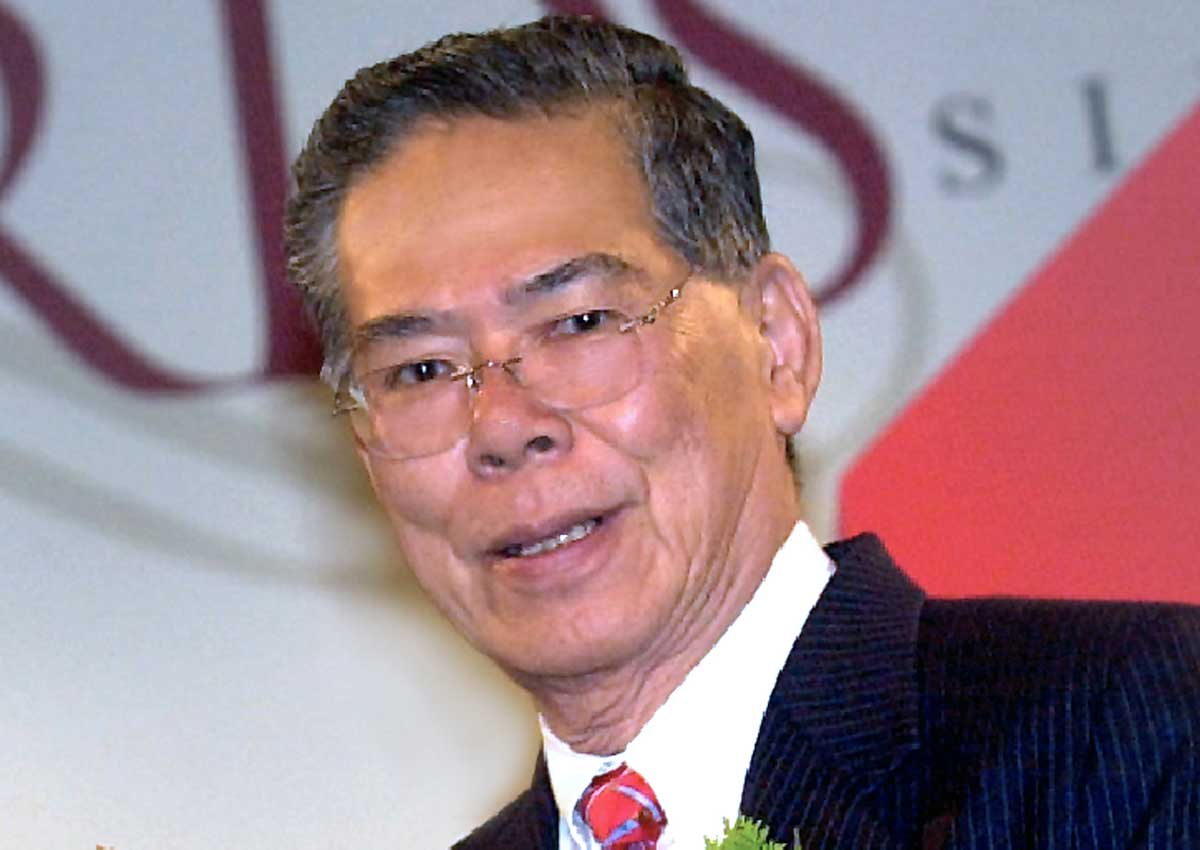SINGAPORE – Pioneer-generation civil servant Kwa Soon Bee died on Sunday (Oct 30), at the age of 86.
A family member of Dr Kwa said he died at about 10am.
Dr Kwa, who was born in 1930, had a long and distinguished career in the medical services.
He joined the civil service as a medical officer in 1956 after graduating from the King Edward Vll College of Medicine at the University of Malaya here, and retired from public service in 1996 as permanent secretary for health and director of medical services.
He was the first Singapore doctor to specialise in haematology, the study and treatment of blood and blood-related disorders, and also served as medical director of Singapore General Hospital.
Dr Kwa was a younger brother of Madam Kwa Geok Choo, Prime Minister Lee Hsien Loong’s mother, who died in 2010.
The Ministry of Health (MOH), in a statement issued on Sunday, said: “Dr Kwa Soon Bee was a true pioneer of healthcare in Singapore.”
Health Minister Gan Kim Yong added: “He laid a strong foundation for the modern healthcare system.”
Shortly after starting his medical career, Dr Kwa got a Singapore Government scholarship to study in the United Kingdom, where he specialised in haematology.
On his return in 1963, he was appointed medical officer in charge of the Singapore Blood Transfusion Services(SBTS), where he later held the post of director.
In 1968, he was appointed medical superintendent of Kandang Kerbau Hospital and put in charge of reorganising it as well as implementing national family planning policies and programmes.
In 1972, he was appointed medical superintendent of SGH, in addition to his duties at the SBTS. He was made chairman of the SGH planning committee, which oversaw the planning and building of the new hospital.
As permanent secretary, he supervised the redevelopment of public hospitals as well as institutions such as the National Cancer Centre and Institute of Mental Health, as well as the development of various specialist centres and polyclinics.
He also started the restructuring of government hospitals and launched the national healthy lifestyle programme.
Shortly after his retirement in 1996, Dr Kwa was conferred honorary fellowship of the Singapore Medical Association a year later.
Professor Tan Ser Kiat, master of the Academy of Medicine, said then that Singapore’s healthcare institutions were “testimony to his farsightedness, vision and skills as administrator, professional and planner”.
Prof Tan noted that Dr Kwa played a major role in the development of medical specialisation in Singapore, resulting in the establishment of specialty centres for skin, heart, eye, mental health, dental and cancer treatment.
“Also not known to many except his close associates, Dr Kwa has been largely responsible for the development of hospital and health management expertise. He systematically and meticulously identified, talent-scouted and trained staff for this important aspect of the health service,” he added.
“Not well known are also his role in pushing for developments in the nursing and ancillary health professionals like nurses, physiotherapists, radiographers.”
“The profession, particularly the younger ones, owes much to his wisdom and vision. It is by no means an accident that we have one of the finest health services in the world,” Prof Tan had said.
Dr Kwa also had an eye for detail. Coordinating Minister for Infrastructure and Transport Minister Khaw Boon Wan, who had worked with Dr Kwa, noted on his retirement 20 years ago that he was a man of diverse interests.
He had said: “With his excellent colour sense and taste, he is the natural interior decorator and uniform designer for all the hospitals.”
On Dr Kwa’s passing, Mr Gan, the Minister for Health, said on Sunday: “Although I never worked with Dr Kwa directly, I have benefited from the legacy he left behind, 20 years after his retirement. He laid a strong foundation for the modern healthcare system.”
Mr Gan noted that many of Singapore’s current hospital buildings and polyclinic facilities were built or redeveloped during Dr Kwa’s tenure as permanent secretary and director of medical services. Dr Kwa also implemented the ‘3M’ framework – Medisave, MediShield and Medifund – which has kept healthcare affordable for all Singaporeans, he added.
Said Mr Gan: “Many of the leaders he nurtured are now playing leading roles in Singapore’s healthcare system. MOH, healthcare professionals, and indeed, all Singaporeans, are indebted to Dr Kwa for his lifetime of dedication and commitment to developing Singapore’s healthcare system.”

This article was first published on October 30, 2016.
Get a copy of The Straits Times or go to straitstimes.com for more stories.






